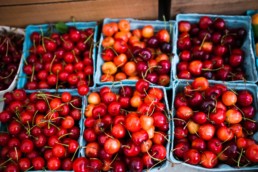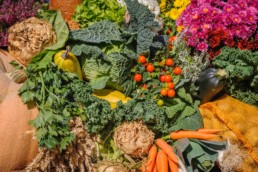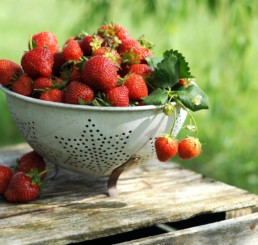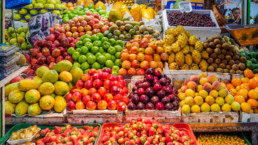Should I choose local non-organic products or organic products from abroad?
Have you ever been confronted with this dilemma, buying local but not organic or foreign but organic? Indeed, it sometimes happens that you don’t have the possibility to buy local AND organic fruits and vegetables. In this case, what is the best and wisest attitude to adopt towards your health and the environment? Choosing a local product will avoid unnecessary transportation and support the regional economy, while choosing an organic product will guarantee a production without pesticides, GMO or chemical fertilizers. Therefore, it can be difficult to decide between the two. This is why, to get an idea of the production conditions and the origin of the products, there are many labels: Bio Suisse, IP Suisse, Suisse Garantie etc. But when the products come from abroad, are the guidelines as strict as in our country? This leads us to wonder if it is not wiser to choose products from a non-Swiss organic label than from a foreign organic label.
The production requirements of the IP-Suisse label compared to the EU organic label
Products with the IP-Suisse label, although not organic, meet numerous production requirements. For example, the use of synthetic pesticides and fertilizers is restricted or even prohibited. For cereals, the use of growth regulators, fungicides, insecticides and synthetic stimulators of natural immune defenses is prohibited. Genetically modified products are also prohibited.
With such requirements, it is questionable whether products grown under these conditions do not have a better environmental record than some organic products from abroad. Especially considering that the EU bio regulations allow only certain parts of the land to be farmed organically. Moreover, it does not require ecological compensation areas, nor does it prohibit the heating of greenhouses for the production of vegetables in winter. In fact, by consuming local products, we also consume seasonal products. And so, we avoid eating tomatoes, certainly organic, but grown in greenhouses in Spain in January.
And the use of pesticides in all this?
If the IP-Suisse label imposes a restriction on the use of pesticides and synthetic fertilizers, it is not guaranteed that the products do not contain them. This further justifies that we may have to turn to organic rather than local products. It is true that the impact on our health can be significant and the organic label is reassuring in this respect.
Go to the place of production to know what you are consuming
The best way to be sure about how the food on your plate was produced is to go directly to the producer instead of the supermarket. And of course then, whether it is an organic producer or not. Local consumption allows a much more precise and reliable traceability than for food coming from abroad. Find local producers around you on Local Heroes who will be happy to inform you about their products!








